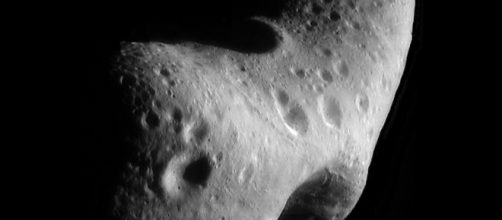As knowledge increase and technology evolve, various nations and huge companies are now capable of heading to the moon. One concerned group calls for UN to start creating rules before it becomes too late.
Items from space should not be in private hands
48 years ago, Neil Armstrong became the first man to set foot on the moon. When he returned to earth, he brought home a sample bag which he used for collecting lunar dust and rock samples.
In 2015, Neil Armstrong’s bag was accidentally sold by the U.S. government to a lawyer from Chicago named Nancy Lee Carlson.
NASA filed a case against the lawyer to reclaim the token from space. But since the bag, as legally acquired, NASA lost. The bag which played a big role in the success of the Apollo mission has been once again auctioned and sold for a significant sum today.
Following the sale of Armstrong’s bag, a non-profit organization called For All Moonkind raised a concern. The organization believes that items from space missions are of great value to the public. These items should be not be placed in private hands. The organization is now pushing the United Nations to create rules that will protect lunar items and secure the moon and other Celestial Bodies from the greed of man.
UN must protect Earth’s celestial neighbors
While safeguarding tokens from men’s historic voyages to the celestial bodies is of top concern, it is only part of a bigger picture. With the technological advancements of today’s age, the space beyond our planet has become more accessible. Several nations and private groups are now drafting missions to explore the moon and other neighboring planets.
Space exploration can bring in new knowledge that can benefit life on earth. However, the massive satellite and rocket launches towards space are posing a threat. Man has been so interested in exploring the moon and space, but no one has ever paid attention to the adverse effects of the increasing number of trips beyond our planet.
Earth’s moon is only 239,000 miles away. The celestial body which is filled with helium and many other resources is a close target. To date, not less than five countries are actively devising plans of exploring and extracting the moon’s bounty through manned missions. In fact, China has been very vocal about their interest in assessing the potential of mining isotopes for nuclear fuel on the moon.
The founders of For All Moonkind are concerned with man’s desire of exploiting the moon. They are pushing to prevent commercializing spaces beyond our planet earth.


